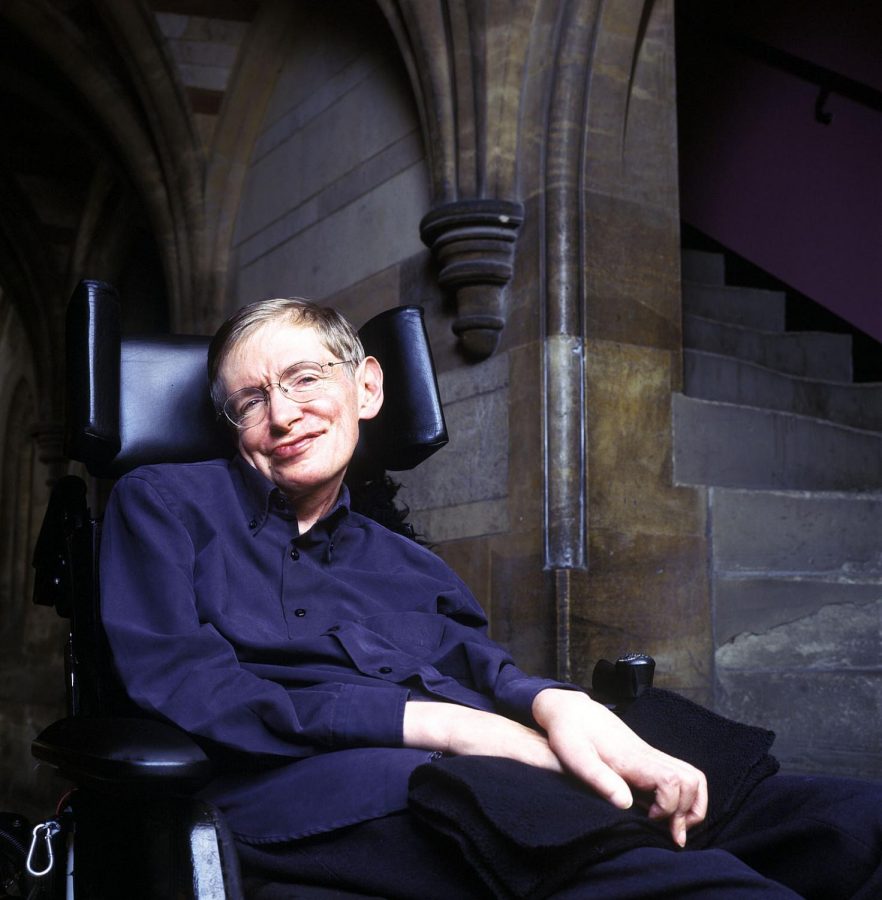Renowned scientist Stephen Hawking dies at 76
March 24, 2018
Stephen Hawking, one of the most advanced astrophysicists and cosmetologists in history, passed away last week. His passing left the scientific community reeling, and Niles North was not unaffected.
“I know that he was one of the greatest physicists of our time,” Samantha Hamilton, senior, said. “He came up with the theory of Hawking Radiation, which outlines how a black hole breaks down, and was the author of A Brief History of Time.” Hawking wrote 31 books over the course of his lifetime; A Brief History of Time is his most widely distributed.
What makes his accomplishments even more remarkable is that he achieved his scientific standing while battling Amyotrophic Lateral Sclerosis (ALS). ALS is a condition that affects the nerve cells in your brain, making movement difficult. Paralysis is likely, and once diagnosed, life expectancy typically ranges from two to five years. As I interviewed my classmates, I noticed a pattern: our conversations revolved around two themes, his intellect and his diagnosis.
“He was diagnosed with ALS in his early twenties and was only expected to live for a few years but he surpassed their estimates many times over,” Hamilton continued. Hawking received the diagnosis at 21 and turned 76 earlier this year.
Hawking battled the expected symptoms of ALS. At 21, he experienced the inability to move his mouth and was gradually paralyzed over the years. He communicates through a small device that picks up movement in his cheek muscles and translates them into words that the computer then reads aloud.
“It was cool to say I was alive at the same time as Stephen Hawking,” one freshman said. “He had ALS….that’s when I learned what the ALS challenge was really about. I did it, but I thought ALS was pretty much cancer. I only really learned what it was when I became a fan of Hawking.”
“I’m only a sophomore, but I’m hoping to have a career in astrology,” another student added. “I attribute that to Stephen Hawking. He was really cool. He was in a wheelchair for most of his life, but he persevered and went on to be one of the greatest, most famous scientists.”
“When I was a kid, my two rock stars were Bill Nye and Stephen Hawking,” the student continued. “It was just so cool how he was given two years to live, and basically said no and lived for like fifty more years.”
“People…find something very, very inspirational in his example of perseverance and persistence,” Hawking’s daughter Lucy said, “and his ability to kind of rise above his suffering.”
There has been a stigma around disabilities, both mental and physical. Part of the reason Hawking took the scientific community by storm was that shock factor: no one expected a quadriplegic man to contribute theories on his academic level, or to be able to communicate his hypotheses. The fact that he was one of the most advanced scientific minds alive surprised the masses and quickly earned him a place among the most revered scientists of the 20th century. A symbol of perseverance and strength, Hawking lives on through his recent discoveries and in history books.


